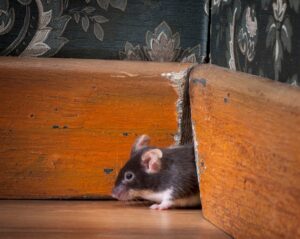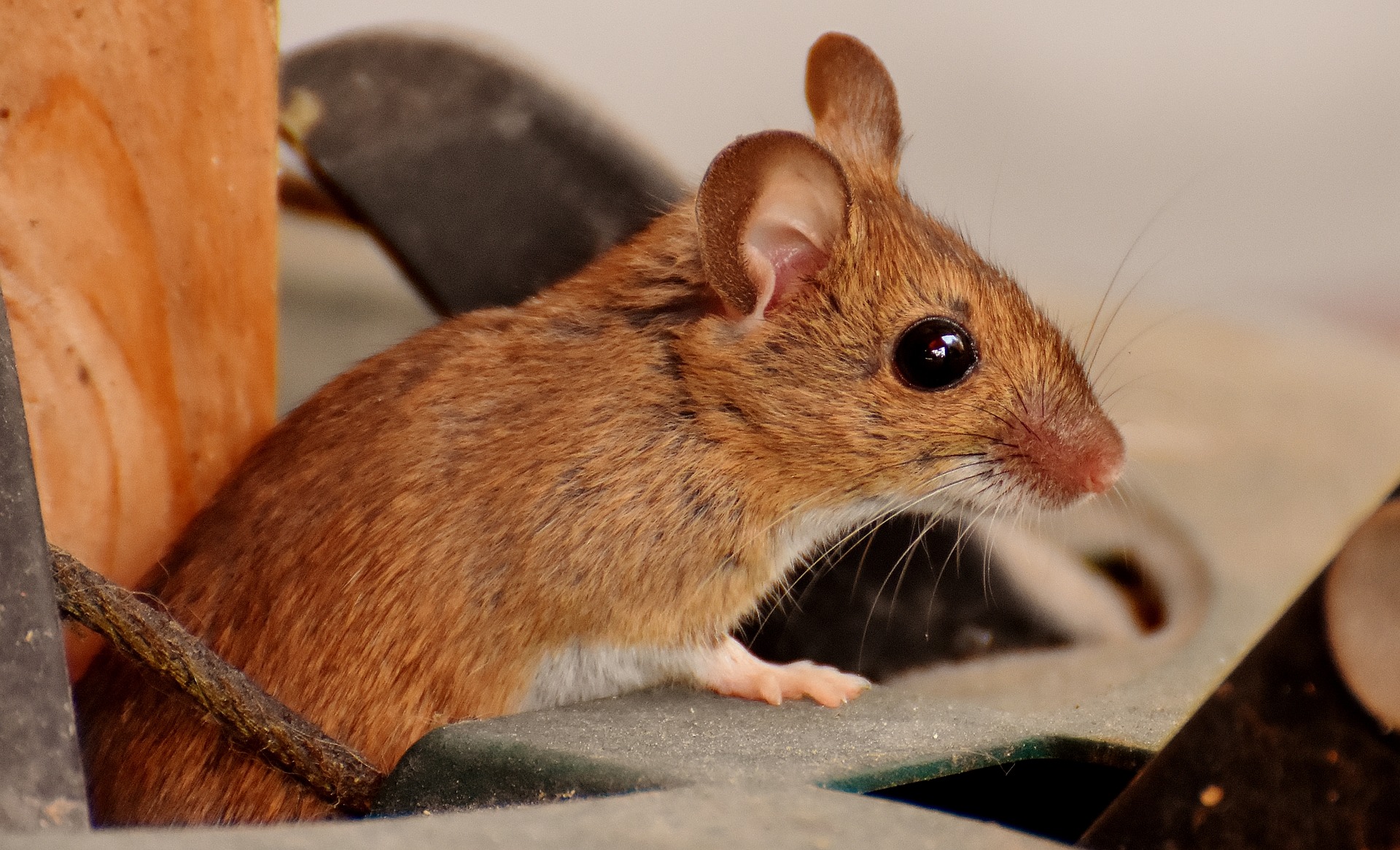Why Do Rodents Move Around in Summer?
Unlike many mammals, rats and mice do not hibernate during the winter. They stay active all year round, but if they have access to shelter and food in human habitations, they do not go outside to forage where the pickings are likely to be slim. As the weather warms again, they may go outside to forage more often but, having found a comfortable home base, they are unlikely to abandon it completely. The rodents' needs change with the change in conditions. As the temperatures rise, mice and rats no longer need warm nests. Therefore, rodents already in the home may relocate from a warmer location, such as the attic, to a cooler one, such as the basement. Mice and rats outside may become more active foraging for food as it becomes more readily available. However, hot weather can adversely affect them as it does human beings. They may still seek out shelter inside homes but shelter from the heat rather than the cold.What Draws Rodents Inside Homes During the Summer?
 Rats and mice spend more time during the summer foraging outdoors for food. However, houses and buildings provide good cover, so the rodents are drawn to them. Rodents may feel a draft of cool air coming from the home through a hole, crack, or opening. The coolness may offer them relief from oppressive hot air outdoors. In addition, it may carry enticing scents of food and water that may draw the rodent to investigate further. If the opening is sufficiently wide for the rodent to fit through, it may come inside to investigate and, finding food and shelter, may decide to stay and make a nest. A crack or hole the width of a dime is sufficient to allow a mouse access to the home because of its ability to compress its body to fit into tight spaces.
Rats and mice spend more time during the summer foraging outdoors for food. However, houses and buildings provide good cover, so the rodents are drawn to them. Rodents may feel a draft of cool air coming from the home through a hole, crack, or opening. The coolness may offer them relief from oppressive hot air outdoors. In addition, it may carry enticing scents of food and water that may draw the rodent to investigate further. If the opening is sufficiently wide for the rodent to fit through, it may come inside to investigate and, finding food and shelter, may decide to stay and make a nest. A crack or hole the width of a dime is sufficient to allow a mouse access to the home because of its ability to compress its body to fit into tight spaces.
What Can Homeowners Do to Prevent a Rodent Invasion?
Rats and mice can be very persistent in seeking shelter. Nevertheless, there are things you can do to discourage them from your property:- Vegetation and overgrowth provide cover in which rodents can hide. Keep grass trimmed short and shrubbery pruned. If possible, vegetation should be kept at least five feet away from the house.
- Look for gaps around windows and doors that rodents could squeeze through. Caulk any holes that you find and replace worn weather stripping.
- Inspect screens in your windows. These should be intact and free from any holes or tears. Small tears and holes may be repairable, but if they are large, the entire screen should be replaced. Choose high-grade aluminum screens that are harder for mice to chew through for a replacement.
- Check for cracks or holes around the exterior of your home. Pay particular attention to places where utility lines or pipes enter. You can fill in the gaps with steel wool as a stop-gap measure until you can employ a more permanent solution.
- Remove food remnants by sweeping floors and cleaning off counters regularly. Even relatively small crumbs can be a feast for a rodent.
- Store food in sturdy, airtight containers. This should prevent the odour from attracting the mice, and even if they smell it, they can't get to it.



